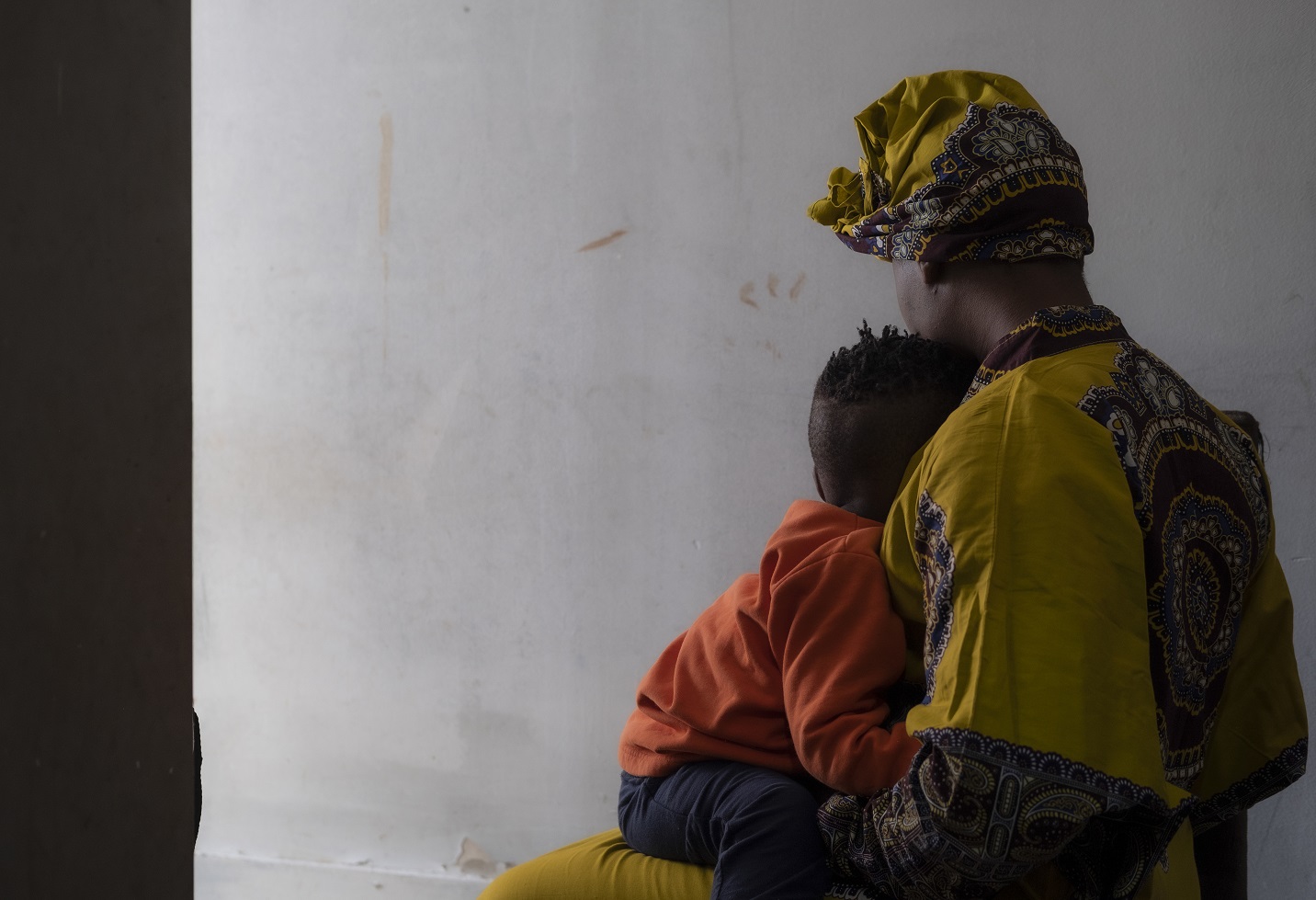
Women and girls make up around 50 per cent of any refugee, internally displaced or stateless population, and some of them are especially vulnerable. © UNHCR/Sebastian Rich
In marking the 30th Anniversary of the 16 Days of Activism against Gender-Based Violence, UNHCR Cyprus launches today a report highlighting the traumatic impact of sexual and gender-based violence (SGBV) on people seeking international protection in Cyprus, especially among women and girls. The primary objective of the report is to provide recommendations to better address the consequences of SGBV, that is often experienced by persons fleeing war or persecution, during flight and/or upon arrival in Cyprus.
The report, which is the result of a study conducted by the Mediterranean Institute of Gender Studies (MIGS) on behalf of UNHCR, showed that women and girls were the overwhelming majority of survivors of SGBV, despite the fact that most asylum-seekers arriving in Cyprus were men. These women and girls reported having faced traumatic experiences of sexual and physical violence, and/or trafficking and sexual exploitation as well as forced marriage. In addition, most of the survivors based their asylum claim on their SGBV experience.
“Sexual and gender-based violence is a serious human rights violation and a major public health challenge globally, known to happen in all contexts. Yet it remains underreported especially among asylum-seekers and refugees. We commissioned this study to gain a better understanding of the impact of SGBV on refugees and asylum-seekers upon arrival in Cyprus to help authorities to enhance support to these particularly vulnerable individuals,” the Representative of UNHCR in Cyprus, Katja Saha says.
“Increasing numbers of women, either alone or with family, are seeking protection from conflict and violence in their countries, and these women are often subject to violence during their journey and/or on arrival in the destination country. This study highlights – from the perspective of those affected – the need for gender-sensitive reception procedures that consider women’s and men’s different experiences and their specific protection needs and that ensure their right to safety and recovery,” the Director of MIGS, Susana Pavlou says.
The main conclusion ensuing from the study is that more needs to be done to identify and provide adequate and timely access to support services to survivors. Several recommendations have been made in this regard, starting from the introduction of a systematic data collection on SGBV among first arrival asylum seekers that will enable the development of programs, policies and measures that respond to the specific needs of SGBV survivors. Other recommendations call for more gender-sensitive support services in reception centres to prevent the risk of violence among asylum seeking women as well as to provide specialist support to women who have suffered SGBV in their country of origin or during their journey. Equally important is to improve the integration opportunities for refugee women SGBV survivors through the provision of specialized support services, accommodation and housing but also, employment and training.
Almost all interviewees demonstrated symptoms of trauma during the interview process. When discussing the impact of their experiences since arriving to Cyprus, interviewees reported psychological distress including anxiety, depression, severe headaches, sleep difficulties, as well as low self-confidence and fear of being re-victimized. Several interviewees reported having experienced physical and sexual violence that in some cases led to permanent physical injuries and longer-term health issues. Also, interviewees reported a number of reproductive health consequences of the SGBV they had experienced, including sexually transmitted infections, unwanted pregnancy, forced abortion, vaginal bleeding, miscarriage, and premature birth.
The impact of SGBV on women asylum seekers and refugees has also significant social implications. When describing their lives in Cyprus, it was clear that the women interviewed did not have strong supportive networks either within their community or with members of the host society. Furthermore, many had cut ties with their families, or had limited communication with them due to continued conflict in their home country. All the interviewees felt isolated, without access to social and family support that would act as a protective factor and increase their psychological wellbeing.
The study was conducted between March to November 2019 among a representative sample of asylum-seekers at the First reception center (Pournara). In particular, the quantitative study was based on some 600 assessments of asylum-seekers while the qualitative interviews of some 20 women asylum-seekers were also conducted following the results of the quantitative research.
49% of all women assessed were identified as victims of SGBV compared to 5.1% of all men assessed. Most of the women survivors were from Cameroon and Congo.
Download the full report – for more information on the methodology and demography of the study, objectives, findings and recommendations.
Μοιράσου το στο Facebook Μοιράσου το στο Twitter